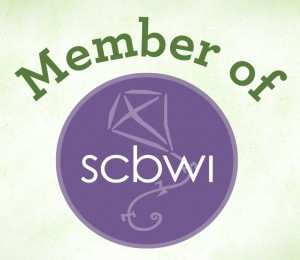The Art of Being Critiqued: 7 Rules to Die by
Knowing how to critique other writers is only half the challenge of the critique process. The other half, the harder half, is hearing other people critique your work.
It’s hard to sit across the table from someone and listen to them methodically shred a piece of writing that you think is near perfect. At times like those, embarrassment, resentment, and good old-fashioned self-doubt can be louder than whatever words your well-intentioned critiquer is saying.
Here are seven guidelines that I use to both take the sting out of critiques and to maximize the benefit I get from them.
1. Never apologize
“I know it’s not perfect, but . . .”
“I didn’t have much time to work on this. . .”
“I don’t usually write in this style. . .”
What’s the first thing most new writers do when they show their work? They apologize.
From an attitude perspective, apologizing for your creation is incredibly destructive. It’s a public announcement of your own insecurities, and it gives them a power and persistence that they don’t deserve. Stand behind your work unflinchingly. Yes, the critiques may sting a bit more, but you’ll feel better about yourself, and work harder to make it better.
On a more practical note, apologizing also pollutes the critique process. We want our readers to judge our work as it stands, not through a filter of “I’ve got to make the writer feel better” or “even the writer doesn’t like this, so I can’t either.”
2. Never answer
“But you don’t understand. . .”
“What you don’t know is that that character had this happen. . .”
“But that’s what I want the reader to feel. . .”
When someone is critiquing your work, just smile and nod. Don’t explain or apologize. In fact, the only response that’s really acceptable is to say “thank you.” This rule is the hardest of all the rules, but it’s also one of the most important.
When you respond to a critique, you pollute the rest of the critique that is given. Responding can make critiquers start to doubt their own impressions of the work, or intimidate them into not giving more feedback, or make them feel sorry for you and soften their other comments. In all of these cases, you’re missing out on valuable feedback.
Another reason not to answer is because you’ll get into arguments over the work, arguments that are ultimately pointless, because you won’t be able to have them with your actual readers.
3. Have a Thick Skin
Remember that it’s not you that’s being critiqued. Neither is it your craft or your writing style. What’s being critiqued is a very specific piece of writing. Don’t let your hurt feelings go beyond that. Focus on improving the writing.
If you can’t stop yourself from getting upset, keep a lid on it during the critique session. Don’t worry. There’ll be plenty of time for you to wail and gnash your teeth later, when there’s no one around to watch.
4. Take Notes
I find taking notes during a critique incredibly helpful. Not only are they helpful later on, when I’m incorporating the critiques into my work, but they also give me a sense of distance from the criticisms. It’s like I’m a reporter, writing down the problems found in this piece of writing that someone else wrote.
Also, I get to write myself little messages like “I love donuts” and “Remember to bring donuts next time.” Sometimes, I even draw donuts.
Because donuts make everything better.
5. Be a Critiquer
This sounds like a weird one, but stick with me.
The typical attitude when being critiqued is that everyone else is critiquing you, and you’re listening. Flip that on its ear. It’s not everyone else critiquing you, it’s everyone (including you) critiquing the writing.
You’re a part of the team that’s doing the critique, not the focus of a weirdly polite inquisition. You always want to be on the side of your readers, even when they’re shredding your work.
6. Think in Terms of Opportunities
A lot of criticisms, even those that seem crushing at first, are openings for you to improve both the writing being critiqued and your craft. Because this one sounds so obtuse, I’ll give you some examples from my writing:
Critique: “This was a total surprise to me. It didn’t make sense.”
Opportunity: I went back through earlier chapters, weaving in the groundwork for the scene she was responding to. Along the way, I discovered a minor theme that I could use to enhance the overall theme of the piece. I didn’t start out intending to make changes to that depth, but they definitely strengthened the piece.
Critique: “You need more quote tags here. I got lost in who was speaking.”
Opportunity: The solution to this one was obvious: add some more “he said / she said”s. I did that. It bothered me, though, that my characters’ diction wasn’t distinctive enough. I went back through the entire book, making sure that the character voices were strong and distinctive enough to be recognizable without tags. Along the way, I found places where I could deepen the reader’s understanding of the characters.
Do you see what I mean? When you get a critique, look for an opportunity to improve the work even more.
7. You’re the Boss
This is both my favorite and my most frightening. The bottom line on a critique is that it’s up to you. If, after honestly considering a criticism, you decide that you don’t want to make a change, you don’t have to. Your writing is yours.
Being the boss is fun. The power lies in your hands.
Being the boss is also frightening. It means that no one is telling me what’s “right.” Often, I get conflicting critiques. One reader tells me a scene is great, and another recommends cutting it. These discussions almost always end with the readers shrugging and saying “well, it’s up to you, really.”
Yikes.
Assuming you’re not writing to a formula, there is no “right answer.” There’s only “your answer,” and hopefully it’s effective for your target readers.
As a final note to this rule, don’t let it go to your head. The reason you’re getting critiques is to hear from other people, so be sure you listen to them. Don’t just ignore them with the excuse that you’re the boss.
I hope these have helped!
As weird as it sounds, I’ve gotten to the point where I often enjoy getting critiqued. Not always, of course. We all have those embarrassing moments where something just doesn’t work. That’s when I remind myself to stick to my rules, to only say “thank you,” and to never explain or apologize.
I also draw a lot of donuts.
Want to comment? Hit me up on Threads or Facebook!



